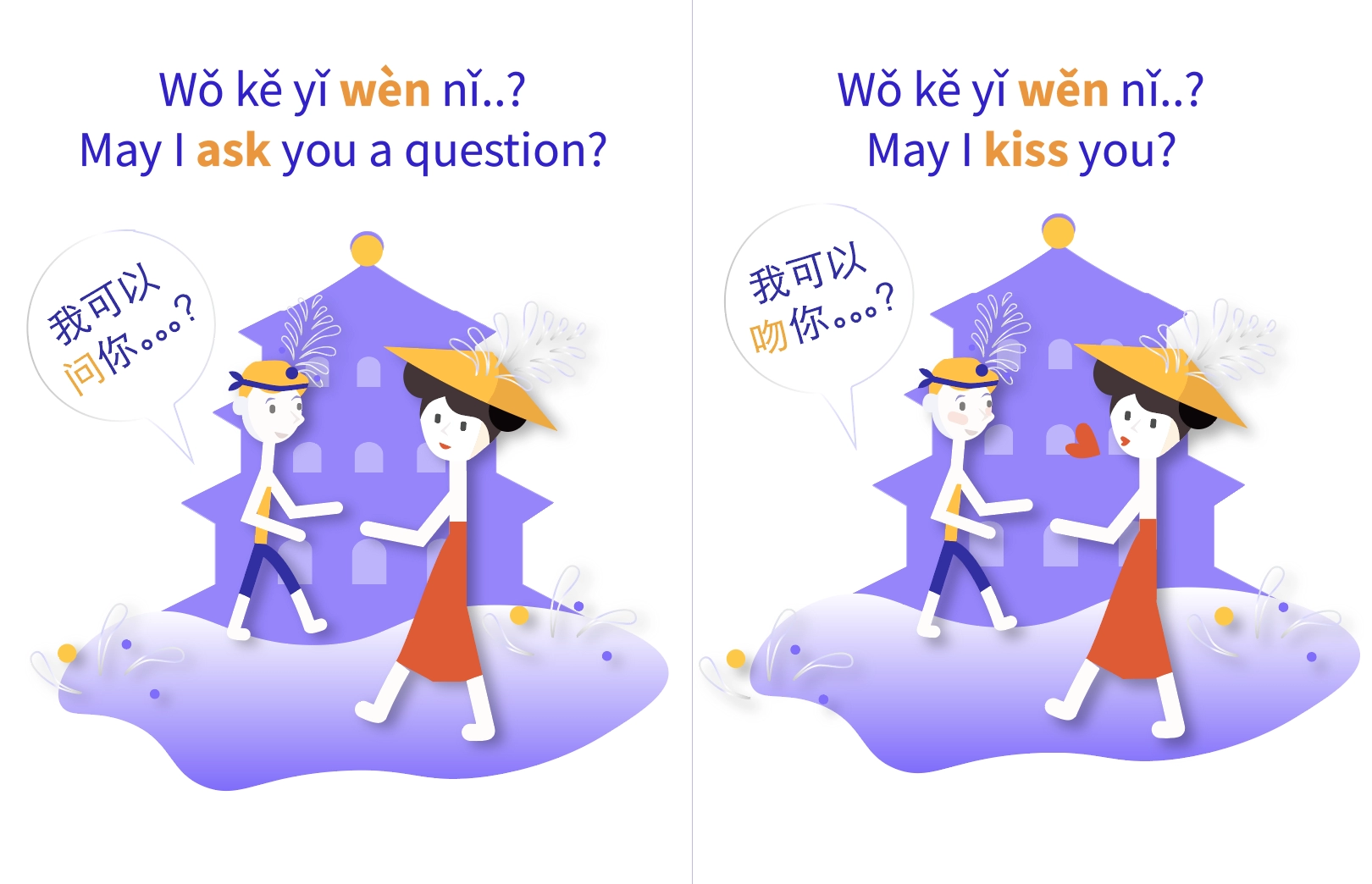
Chinese is a tonal language which means that the language relies heavily on tones to convey the meaning of words. In English, the tone of voice can also carry emphasis, for example when your intonation rises at the end of a question. In Chinese however tones are strictly associated with words and it is easy to be misunderstood or not understood at all when getting tones wrong. Let me give you a few examples.
May I ask you a question?
Wǒ kě yǐ wèn nǐ? 我可以问你 。May I ask you a question?
Wǒ kě yǐ wěn nǐ? 我可以吻你? May I kiss you?
The word ask (问) and the word kiss (吻) are both pronounced wen and can only be differentiated through their tones. I’d highly recommend you to pay attention to your 3rd and 4th tone when using this phrase to avoid laughter, embarrassment or…a kiss?
I have eaten enough.
Wǒ chī gòu le! 我吃够了。 I have eaten enough.
Wǒ chī gǒu le! 我吃狗了。 I have eaten a dog.
The word enough (够) is pronounced gòu and the word for dog (狗)is pronounced gǒu. Again, the difference is only in the tone. Practise the phrase a few times before using it and make sure to get the tone right!
I am studying Chinese.
Wǒ xué hányǔ. 我学韩语。 I am studying Chinese.
Wǒ xué hànyǔ. 我学汉语。I am studying Korean.
The words Chinese (汉语 hányǔ) and Korean (韩语hànyǔ) also consist of identical syllables. If you are getting the tone on han wrong it is impossible for listeners to know which language you are studying.
To sum up, native Chinese speakers will only understand you half of the time. If you’re not used to tonal languages, tones will be difficult to use correctly at first but it is something everyone can learn through exposure and practice. So, don’t give up and keep speaking. You will definitely make mistakes but amusing situations and laughter are part of learning a new language! And besides, other languages have up to 12 tones. Chinese is still a cakewalk.